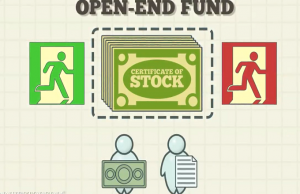In this blog post, Gopalakrishnan Arjun, a student of the National University of Advanced Legal Studies, Kochi, who is currently pursuing a Diploma in Entrepreneurship Administration and Business Laws from NUJS, Kolkata, writes about the kind of securities that can be issued by a company when it raises investment.
The following kind of securities can be issued by a company when it raises investment:
-
Shares:
A share is a type of equity security. The owner of the share owns one part of the capital of the company which has issued the shares in question. A right which accompanies an allotment of the shares is the right to take part in the decision-making of the company. In a situation where the Company earns a profit, the owners of shares will receive dividends. The amount of the dividend is decided upon by the shareholders at a General Meeting of the Shareholders.
-
Bonds:
A bond is a form of debt security. On the purchase of a bond, one will have no right to participate in the company’s decision-making but will be entitled to the reimbursement of the principal and the interest. The repayment can be made in several ways. The companies may decide that the principal is paid in regular annual instalments or on the maturity of bonds. The refund of the instalments could be made in a fixed amount or may even be variable depending on the inflation rate or the foreign currency. The issuers pay the interest once every year or once every half-year depending on the coupon maturity date.
-
Open-end funds:
An open-end fund involves a diversified portfolio of securities and similar investments, which are chosen and professionally managed by a fund management company. The fund does not have fixed capital and is rather ‘open ended’. This is the reason why it grows together with new investors joining and thus funding it. These open-end funds can invest in domestic as well as international securities, in either share, bonds or other investment vehicles. The fund’s risk and returns vary by the portfolio.
Normally, these open-end funds are not traded on exchanged. There are only a few exchanges worldwide where open-end fund shares can be bought, but there are exceptions. These open-end funds are usually bought through fund management companies. The trading in open-end fund shares on an exchange involves no entry or exit fees for investors. Broker’s fees only bind them. Investors invest in the fund through a postal or standing order, being charged with an entry fee upon each new purchase and with an exit fee when they decide to sell their fund units. The other option that is exercised by the investors is to buy through a brokerage firm.
-
Index open-end funds:
In the case of an index open-end fund, the fund management companies allot the investors’ assets to a basket of securities making up a chosen index that tracks the yield of the mentioned index. The big investors invest directly in the fund and the minor investors only trade in fund shares on stock exchanges. Since there is a possibility of arbitrage, the market price of index open-end fund shares does usually not stray from its NAV for more than 1%.
Before the purchase of an index open-end fund unit, a declaration of accession must be signed. After this, the assets are transferred to a special fund account, open at a custodian bank. The fund, upon each purchase, charges appropriate entry and exit fees which can be a maximum of 3%. The fund investors are also charged a management fee of 0.5% of the average annual fund NAV and the costs of custodian services, which is 0.1% of the average annual fund NAV. Each purchase or sale within the fund on the primary market results in a changed number of index open-end fund shares. This, in turn, affects the changes in the size of fund’s assets. The index open-end fund shares are purchased and sold at NAV, as calculated by the management company.
The minor investors can buy index open-end fund shares on the exchange at the price that forms on the market, without entry or exit fees, being charged brokerage fees solely. Exchange trading of index open-end fund shares does not affect the size of capital; while the owners of index open-end fund shares change, the fund’s assets remain unaffected.
-
Close- end funds:
A close-end investment fund invests its capital in securities by other issuers. The Investment Company is managed by a management company which decides which securities to include in the fund’s portfolio. The investment company pays the management company a management fee. The value of shares of the close-end funds is closely correlated to the value of the company’s shares.
-
Investment certificates:
Investment certificates are debt securities issued by a bank and are designed to offer the investor an agreed yield under pre-defined conditions stipulated in the prospectus. Issuers are mainly large banks, and an important criterion in selecting the bank in whose investment certificates you would like to invest is its credit rating. Investment certificates represent an investment directly linked to an index, share price, raw material price, exchange rate, interest, industry, and other publicly available values. The holder of an investment certificate does thereby not become an indirect owner of the assets underlying the certificate.
-
Warrants:
Warrants are options issued by a joint-stock company, which give holders the right to purchase a certain quantity of the respective company’s shares at a pre-determined price. After a certain period, the right to purchase shares terminates.
 Serato DJ Crack 2025Serato DJ PRO Crack
Serato DJ Crack 2025Serato DJ PRO Crack













 Allow notifications
Allow notifications


